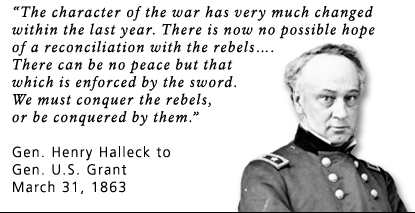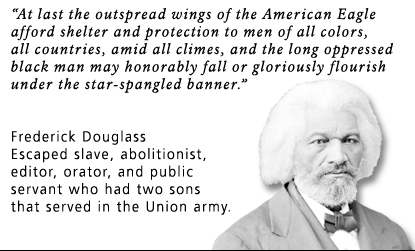
Military Necessity The Emancipation Proclamation also paved the way for the enlistment of black Americans as soldiers. During the summer of 1862, as Lincoln pondered emancipation, the North was facing a shortage of soldiers. Lincoln even offered volunteers enlistments for only nine months instead of the usual three years, hoping that a shorter enlistment would attract more recruits. One solution: Enlist black Americans, whether free men from the North or freed slaves from the South. 
Despite deep and widespread prejudice, the Union began recruiting black Americans in earnest in early 1863. Believed to be physically and spiritually unfit as fighting men, they were initially confined to non-combat jobs. However, African-American soldiers proved their mettle on the battlefield. They distinguished themselves in May 1863 when they bravely attacked across open ground against Port Hudson on the Mississippi River in Louisiana. A month later, black troops made another valiant charge when they stormed Fort Wagner near Charleston, S.C. This Famous attack was depicted in the movie "Glory." About 186,000 African-Americans served in the Union army making up about nine percent of Union army forces. The North’s advantage in military manpower was a critical factor in its victory in the Civil War. Some northerners supported Lincoln’s measure on moral grounds. But many endorsed emancipation because they favored any action that would help defeat the enemy and end the war. 
NPS Image
Go back to part 1 of Freedom at Antietam Dr. Martin Luther King spoke about the Emancipation Proclamation in September 1962. Here is the speech he delivered. |
Last updated: September 15, 2023
